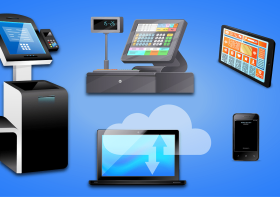Revolutionizing Business: How Mobile App Development Melbourne Transforming Companies

It’s no longer a question of if businesses should invest in mobile applications; it’s how can businesses best take advantage of their mobile capabilities. Mobile applications are revolutionizing the way businesses interact with their customers and manage their operations. The ever-evolving features of mobile applications present new opportunities and challenges that businesses must be prepared to face in order to stay competitive and successful in today’s market. From customer engagement to business analytics to workflow automation, mobile applications are transforming the way businesses operate.
Mobile apps have made both business and customer information more accessible, as consumers have begun to rely only on phones when accessing product data, comparing competitors, and buying online. If you have used the web as part of your marketing and sales strategy, mobile apps allow your brand to continue expanding on a global scale.
Today, mobile apps are the programs that have more reason to share media, collaborate with businesses, and conduct online transactions with vendors in several geographical locations. From the most basic productivity apps like email, calendar, and contacts to AI-powered ecommerce applications, mobile apps have gone very far today.
According to the eMarketer’s study, sixty-one percent of the US population’s overall mobile time is spent using mobile apps, and a large portion prefers in-app experiences. This is exciting news for app developers, publishers, and businesses as well as consumers. By mastering the leading mobile development tools, frameworks, and programming languages, you can build world-class mobile apps that users download and enjoy.
Top Trends in Mobile App Development
Future mobile app development Melbourne will be faster and smarter. The trends predicted for mobile app development are focused on developing new ways of designing apps.
Artificial Intelligence
AI and ML have accepted practices for developing mobile apps. The use of AI in telemedicine apps cuts the time taken up by administrative tasks. Mcdonald’s uses AI and big data to personalize drive-thru menus for each individual customer as these technological advancements in the vehicle service industry increase.
Smart navigation apps, industry logistics apps, chats, voice-based apps, predictive analytics for private suggestions in e-commerce, and fraud James Harden apps using facial recognition are some of the top use cases for AI in mobile software applications. App integration will improve user experience and facilitate revenue.
Mobile Commerce
Statista projects by late 2022, the total of mobile e-commerce sales in the United States will exceed 430 billion USD. Users are turning to mobile payment and shopping apps to make everyday purchases and check balances, purchase tickets, and more.
As of 2021, approximately one-third of U.S. consumers have bought something online each week by cellular phone. The younger generations have a greater inclination towards contactless payments, enabled through in-app mobile payment services, such as Apple Pay and Google Pay. Ignoring the trend of mobile commerce could make it impossible for your businesses to keep pace with other e-commerce giants.
AR and VR Apps
Mobile AR applications generate revenue and another usage by 2022, with the number of those users estimated to reach 1.73 billion.
VR is also transforming mobile application development in the same manner as augmented reality. VR can connect with apps, phones, and wearables to improve the user experience and increase the content of fully functional apps. According to Design News, the number of revered manufacturers that have implemented augmented reality and virtual reality technology within their workplace has increased by 29 percent in recent years.
5G Technology
5G, the next-generation mobile phone network, is the latest communication network that interconnects all mobile devices, devices, and things. It provides broadband speeds, improved reliability, offline access, great network capacity, and very low latency. 5G will transform how mobile applications are created and used.
It is estimated that by 2023, 10% of every portable router and connection will be 5G-enabled. 5G will enable much faster application development, allowing mobile apps to deliver improved features and without having to worry about lag. 5G is expected to enable networks to work faster and also offer greater bandwidth.
In conclusion, mobile apps have become an invaluable tool in the business world. They have streamlined processes and improved customer experience while driving cost savings, increasing revenue, and helping businesses remain competitive. Mobile applications have allowed businesses to create more personalized customer experiences, increase efficiency and productivity, and tap into new markets. As companies continue to adopt mobile technology, they will find more innovative ways to use it to transform their businesses.



